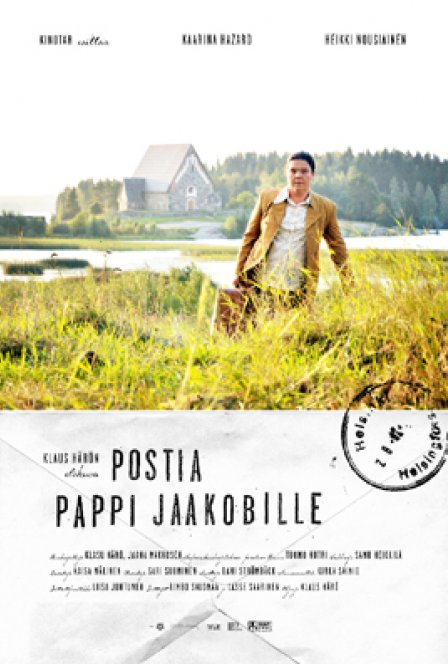Letters to Father Jacob, a Finnish film directed by Klaus Härö, starts bravely but never delivers on the potential hinted at with the nuances of the first scene. The strategically lit prison cell, the unwavering resolve of Leila the inmate, and the sounds of the undulating Nordic vowels loping along the dialogue track all make for an intriguing first impression. But as the film progresses, it becomes burdened with unsympathetic/flat characters, an overdone plot, and too much sentimentality. While the film is about penance, redemption, and forgiveness, even these terms seem trite and off-putting when recalling the hackneyed dynamics and terse interactions.
The film follows Leila, a newly pardoned inmate released from prison on condition of retaining employment. Begrudgingly, she is placed in the service of the visually impaired Father Jacob, a pastor living in the rural recesses of Finland. As his assistant, Leila is asked to read the letters mailed to Father Jacob from parishioners asking for advice, prayer, or giving thanks for his generosity and guidance. He then dictates a response that Leila apathetically notates. These correspondences seem to be the only connection Father Jacob maintains with civilization, outside of the overly enthusiastic mail carrier who eventually grows suspicious of Leila and wary of her intentions.
Leila’s crime is not discussed in the beginning of the film. Its severity is only alluded to through the brief discussion of her sentence and references to Leila’s former status as a “Lifer.” Her stout figure and hard, unmoving face, locked in the perpetual creases of her frown, may intend to belie a woman unfeeling and without remorse. But instead her visage and attitude become distracting blemishes augmented by her lack of generosity and care. In stark contrast to Leila is the physically feeble Father Jacob, who gyrates and trembles throughout the film as though on the precipice of either religious epiphany or death (you can guess which one it eventually is). Father Jacob is too divine, too blind, and too magnanimous. As a foil to Leila, he highlights her unappealing traits as a character while compounding his own extreme and at times obnoxious goodness.
Their relationship follows the predicted arc: silent contempt, eating toast, conflict, sympathy, long johns, shocking revelation, tears, the end. I appreciate the narrow scope of the film, the seeming simplicity of its task and the focus and scrutiny of its main protagonists. But to make a film like this work, with its potential for reverting to gross and uninteresting tropes, it must do more then rely on the Scandinavian landscape and cinematic lineage. It must provide a compelling variation on these standards, a challenge to the predestined and mythic conclusions or complicate the assumptions and values of the story or its characters. It could even just be aesthetically beautiful. Unfortunately, Letters to Father Jacob illuminates none of these possibilities.

